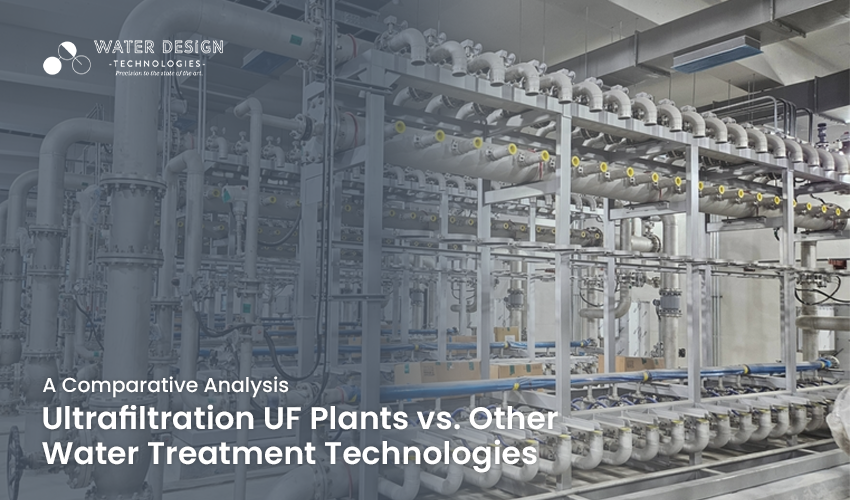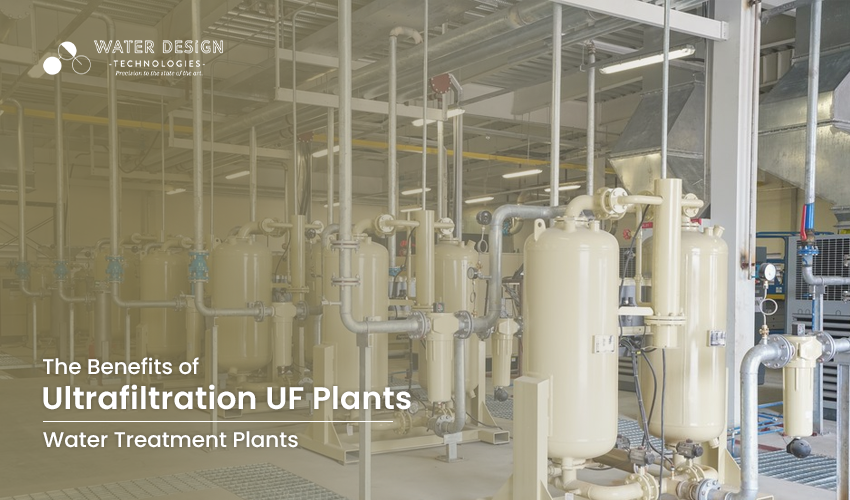When it comes to ensuring the availability of clean and safe water, selecting the right water treatment technology is paramount. Among the various options available, Ultrafiltration (UF) Plants have emerged as a highly effective solution. In this blog post, we will conduct a comparative analysis of Ultrafiltration UF Plants and other water treatment technologies, highlighting why UF plants, particularly those offered by Water Treatment Technologies, stand out as some of the best water treatment solutions.
Understanding Ultrafiltration UF Plants
Ultrafiltration (UF) Plants use a membrane filtration process that removes particles, bacteria, and viruses from water. The membranes used in UF plants have pores that are typically smaller than 0.01 microns, ensuring the removal of contaminants while allowing water and low-molecular-weight solutes to pass through.
Key Features of UF Plants:
- High Filtration Accuracy: Capable of removing pathogens and particles as small as 0.01 microns.
- Chemical-Free: Often operates without the need for chemicals, making it environmentally friendly.
- Low Energy Consumption: Efficiently purifies water with relatively low energy requirements.
- Compact Design: UF systems are typically compact and easy to install, making them suitable for a variety of applications.
Ultrafiltration UF Plants vs. Other Water Treatment Technologies
1. UF Plants vs. Reverse Osmosis (RO)
Reverse Osmosis (RO) systems are another popular water treatment technology, known for their ability to remove dissolved salts and minerals from water.
Comparison:
- Filtration Capability: While RO systems are excellent at removing dissolved salts and impurities, they also remove beneficial minerals from water. UF plants, on the other hand, retain these beneficial minerals while removing harmful contaminants.
- Energy Consumption: RO systems typically require more energy compared to UF plants due to the high pressure needed to force water through the RO membrane.
- Waste Production: RO systems generate a significant amount of wastewater, which can be a drawback in areas where water conservation is critical. UF plants produce less wastewater, making them more sustainable.
2. UF Plants vs. Conventional Filtration
Conventional Filtration methods, such as sand and carbon filters, are widely used for basic water purification needs.
Comparison:
- Filtration Accuracy: UF plants provide a much higher level of filtration accuracy compared to conventional methods, effectively removing pathogens and small particles.
- Maintenance: Conventional filters often require frequent maintenance and replacement, while UF plants are more durable and have longer service intervals.
- Chemical Use: Conventional methods may require the addition of chemicals for effective filtration, whereas UF plants typically operate without chemicals.
3. UF Plants vs. UV Treatment
Ultraviolet (UV) Treatment is a method that uses UV light to disinfect water by killing bacteria and viruses.
Comparison:
- Disinfection Capability: UV treatment is effective at killing microorganisms but does not remove particles or chemicals from water. UF plants not only remove pathogens but also filter out particulate matter.
- Energy and Maintenance: UV systems require a continuous power supply and regular maintenance to ensure the UV lamps are functioning correctly. UF plants are generally less maintenance-intensive.
Ultrafiltration UF Plants in Gujarat
Water Treatment Plants offers some of the best Ultrafiltration UF Plants in Gujarat, catering to the region’s diverse water treatment needs. Their UF plants are designed to provide high-quality water treatment solutions, ensuring safe and clean water for various applications.
Advantages of UF Plants by Water Design Technologies:
- Advanced Membrane Technology: Utilizing state-of-the-art membranes for superior filtration.
- Custom Solutions: Tailored to meet specific requirements of different industries and residential needs.
- Reliability: Proven track record of delivering consistent and reliable performance.
Conclusion
In conclusion, Ultrafiltration UF Plants offer numerous advantages over other water treatment technologies, including higher filtration accuracy, lower energy consumption, and minimal chemical use. When considering the best water treatment technologies, UF plants, particularly those from Water Design Technologies, provide an efficient and sustainable solution for ensuring clean and safe water.
For more information on Ultra Filtration Plants in Gujarat and how they can benefit your specific needs, contact Water Design Technologies today. Their expertise and advanced solutions make them a trusted partner in achieving superior water quality.



